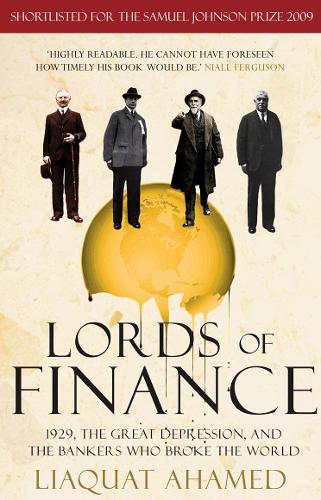Lords of Finance provides a gripping account of the financial crisis of the 1930s, focusing on the central bankers who shaped economic policies. The book offers a detailed and engaging narrative that highlights the complexities and consequences of their decisions.
Lords of Finance is a compelling exploration of the financial crisis of the 1930s, centering on the lives and decisions of four key central bankers. The book delves into the personal and professional challenges these men faced, providing a nuanced understanding of the economic turmoil of the time. The narrative is both informative and engaging, offering insights into the broader implications of their actions. While the book is dense with historical detail, it remains accessible and thought-provoking, making it a valuable read for anyone interested in economic history.
Quick quotes
The book is a masterful account of the financial crisis of the 1930s.
It offers a detailed and engaging narrative that highlights the complexities and consequences of the central bankers' decisions.
The author provides a nuanced understanding of the economic turmoil of the time.
